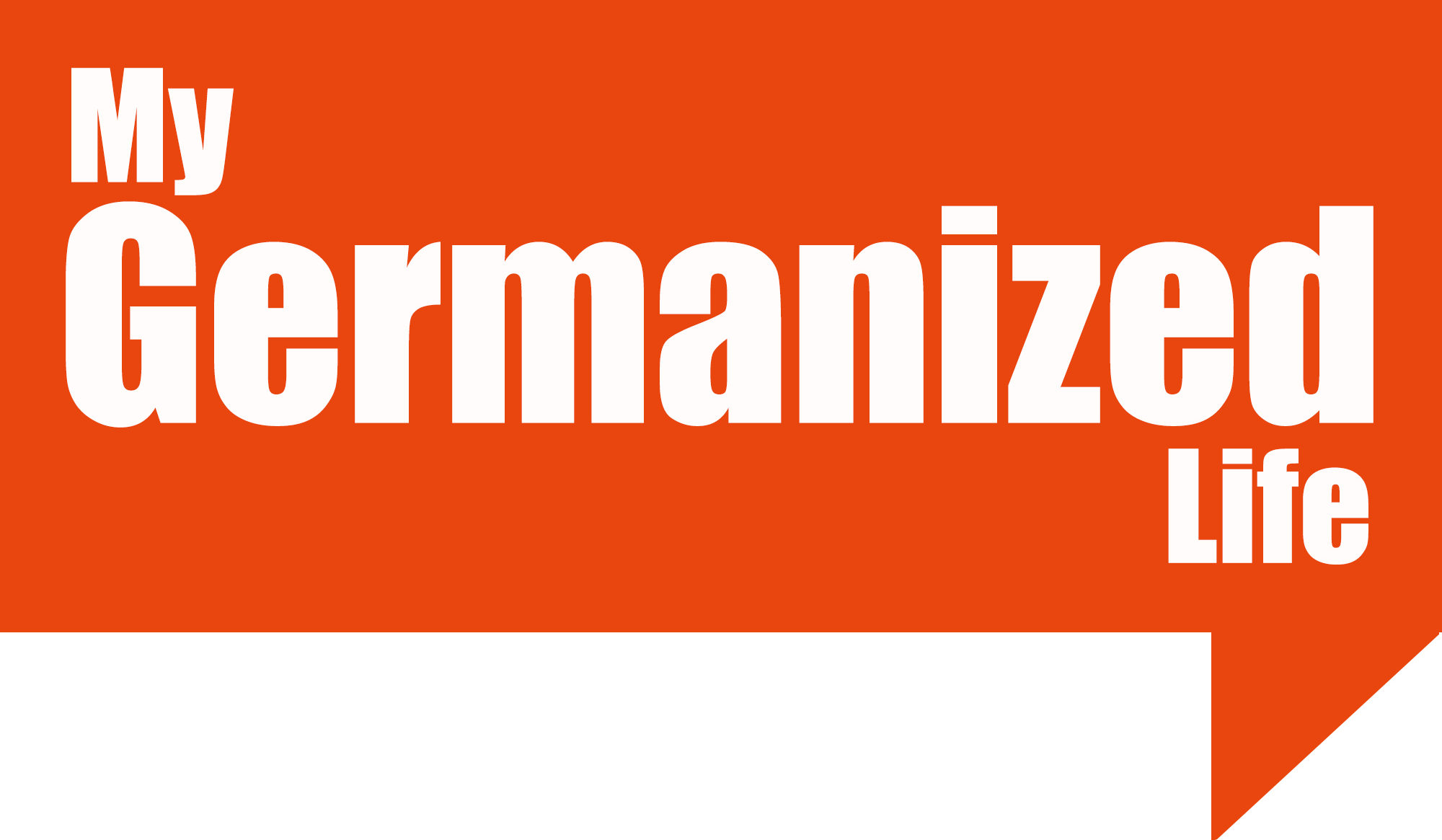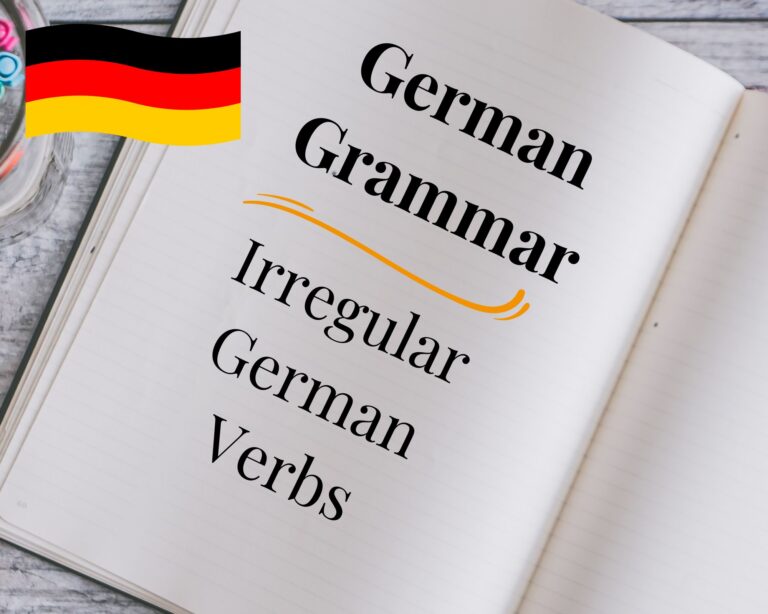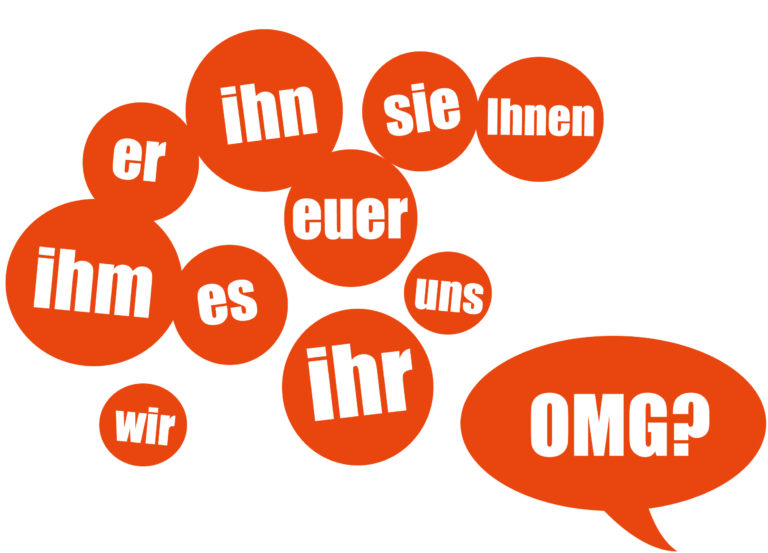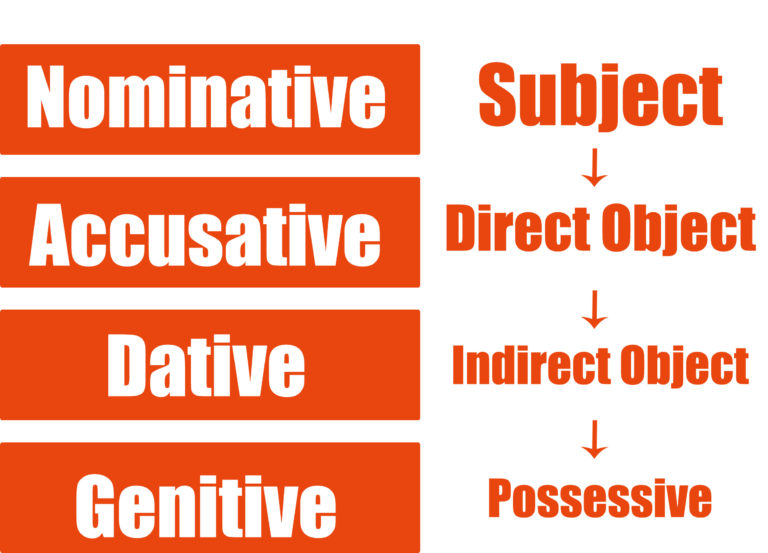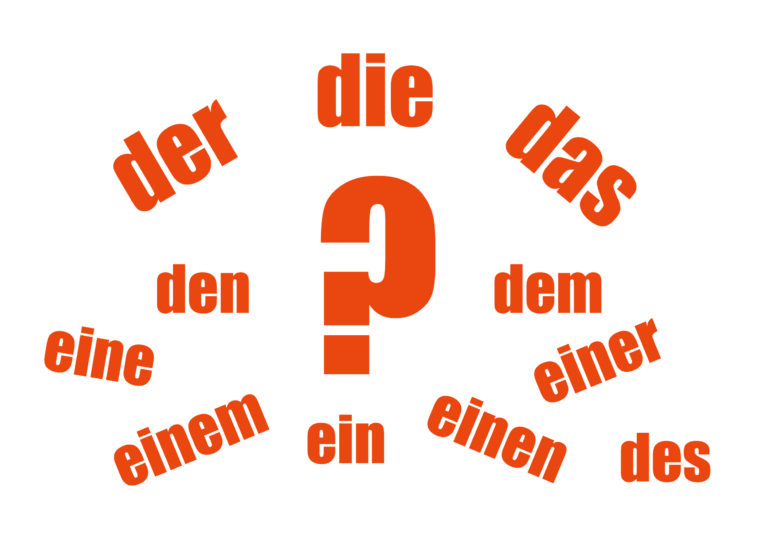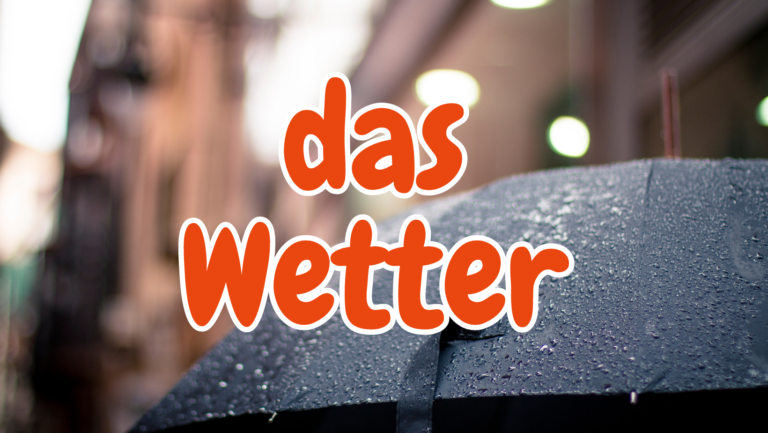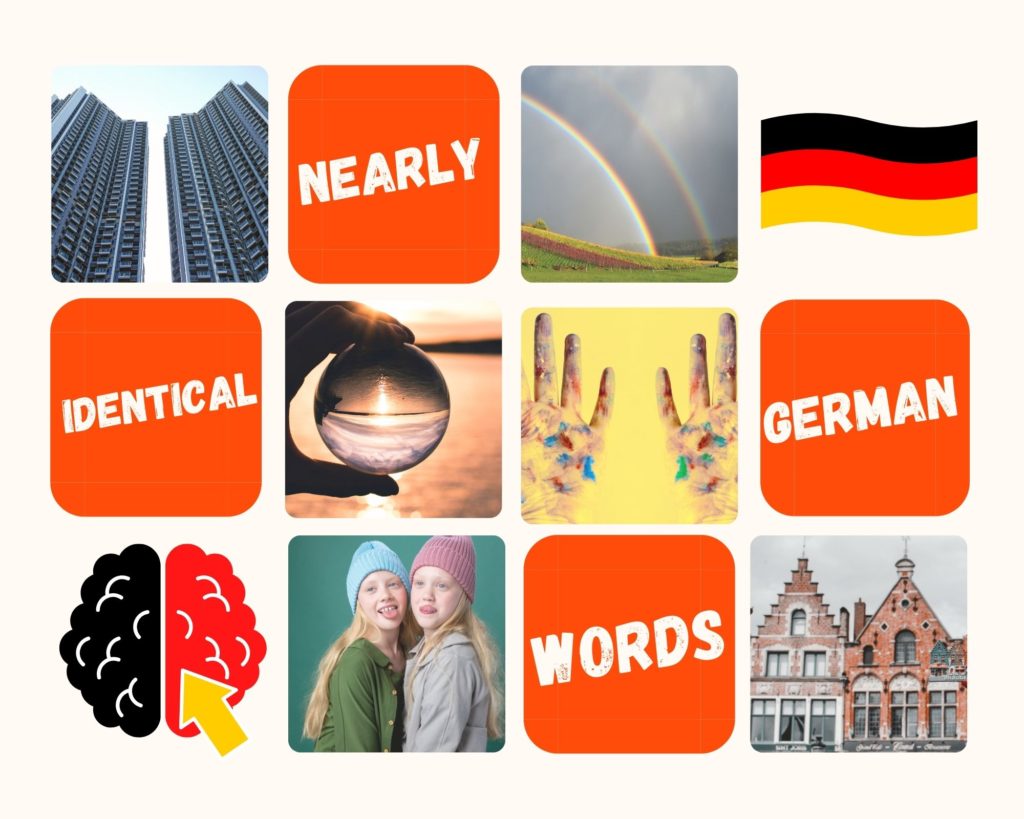
Many common German words are very similar to their English counterparts and share the same meaning. If you have already read the post, German and English Words That are the Same, you already know.
Did you know that 60% of German words share similarities with English? (Another term to describe the sounds two languages have in common is lexical similarity.)
You can gain a significant head start on your language-learning journey by learning the German words that are most like English ones in spelling and meaning. After learning which words are identical in both languages, it’s time to expand your vocabulary.
Although the following words are spelled similarly, the pronunciation can be very different. That’s why it’s ideal to use the included audio recordings to test and improve your speaking skills throughout this post.
You can download the free printable PDF flashcards with 120 German Words. Then, test your memory and pronunciation of common German words that are almost identical in English.
Common German Words With Common Spelling Differences
When you’re reading through the list of common German words that are almost the same in English, you’ll probably notice patterns. That’s because many of the spelling changes are predictable. Some of the most common vowel and consonant changes you’ll see between German and English include:
- English C becomes K in German
- English ITY becomes TÄT in German
- German verbs use an –en ending in the base form
- English TH becomes D in German
- English S becomes SCH in German
- The final Y in English nouns becomes IE in German
- The final Y in English adjectives becomes IG in German
Now that you know how spelling patterns differ in German and English, you might start recognizing and understanding German words that aren’t on this list! Once you’re familiar with the transformations, you’re equipped with the formula for success to learn German on your own.
Common German Words That are Similar in English
The German words below are spelled slightly differently from their English counterparts, but they sound almost identical. Expand your basic German vocabulary with the words below.
Remember to capitalize your German nouns.
A Words
address – die Adresse
all – all (prefix)
alone – allein
and – und
apple – der Apfel
ash – die Asche
aspect – der Aspekt
B Words
to babysit – babysitten
to bake – backen
baker, male/female – der/die Bäcker/in
banana – die Banane
bear – der Bär
beer – das Bier
before – bevor
to begin – beginnen
berry – die Beere
better – besser
to bring – bringen
brother – der Bruder
brown – braun
bush – der Busch
by – bei
C Words
chin – der Kinn
coffee – der Kaffee
to come – kommen
concert – das Konzert
condition – die Kondition
crocodile – das Krokodil
culture – die Kultur
D Words
dance – der Tanz
democracy – die Demokratie
diamond – das Diamant
direct – direkt
doctor – der Doktor
dolphin – der Delfin
E Words
effective – effektiv
end – das Ende
energy – die Energie
exact – exakt
extreme – extrem
F Words
fantastic – fantastisch
father – der Vater
firm – die Firma
fish – der Fisch
male/female friend – der/die Freund/in
Friday – der Freitag
full – voll
function – die Funktion
future – die Futur
G Words
garden – der Garten
glass – das Glas
good – gut
grass – das Gras
gray – grau
guest – der Gast
H Words
hair – das Haar
heart – das Herz
to help – helfen
help – die Hilfe
hope – hoffen
house – das Haus
hungry – hungrig
I Words
ice, or ice cream – das Eis
industry – die Industrie
insect – das Insekt
intensive – intensiv
J Words
jacket – die Jacke
jewel – das Juwel
K Words
kayak – das Kajak
to kiss – küssen
L Words
lamp – die Lampe
logical – logisch
long – lang
to learn – lernen
lungs – die Lunge
M Words
man – der Mann
machine – die Maschine
massive – massiv
method – die Methode
mother – die Mutter
mouse – die Maus
milk – die Milch
middle – das Mittel
mobility – Mobilität
Monday – der Montag
morning – der Morgen
mother – die Mutter
music – die Musik
N Words
nationality – die Nationalität
naturally – natȕrlich
nature – die Natur
new – neu
noodle – die Nudeln
nose – die Nase
negative – negativ
O Words
ocean – der Ozean
official – offiziell
often – oft
oven – der Ofen
over – ȕber
P Words
to pack – packen
panic – die Panik
paper – das Papier
perfect – perfekt
photo – das Foto
positive – positiv
prize – der Preis
program – das Programm
psychology – die Psychologie
Q Words
quality – die Qualität
quantity – die Quantität
R Words
recipe – das Rezept
regular – regulär
religious – religös
romance – die Romanze
S Words
salt – das Salz
shoulder – die Schulter
silver – silber
to sing – singen
to sink – sinken
sour – sauer
to stink – stinken
street – die Strasse
to study – studieren
summer – der Sommer
supermarket – der Supermarkt
T Words
telephone – das Telefon
ten – zehn
tomato – die Tomate
thing – das Ding
thirst – der Durst
U Words
university – die Universität
under – unter, unten
V Words
vacuum – das Vakuum
vulgar – vulgär
W Words
to warn – warnen
to wash – waschen
windy – windig
wonder – das Wunder
worm – der Wurm
Y Words
young – jung
Example Phrases With Common German Words
Now, it’s time for the fun part! Let’s put together all the similar words into example sentences that you can understand with minimal effort.
Dialogue 1
Tanja: Guten Morgen, Bruder. Trinkst du einen Kaffee? (Good morning, brother. Are you drinking coffee?)
Thomas: Ja, danke! Ich habe extrem Durst. (Yes, thanks. I’m extremely thirsty.)
Tanja: Kommst du am Freitag zum Konzert? (Are you coming to the concert on Friday?)
Thomas: Natȕrlich! (Naturally!)
Dialogue 2
Let’s look at one more example dialogue.
Nadine: Hallo, Mutter. Hast du das Lasagne-Rezept? (Hello, mother. Do you have the lasagna recipe?)
Katja: Ja, aber du musst die Methode lernen. (Yes, but you must learn the method.)
Nadine: Ich gehe in den Supermarkt bevor wir beginnen. (I’ll go to the supermarket before we begin.)
Katja: Bringst du die Butter, Nudeln, und Tomaten? (Are you bringing butter, noodles, and tomatoes?)
Nadine: Logisch. Ich bringe alles! (Logically. I’m bringing everything.)
Final Thoughts
Learning German can be fun, easy, and rewarding, but only if you break down your studies into manageable tidbits. Focus on vocabulary that you already know and learn how to pronounce German words correctly. Then, move on to almost identical words and learn to recognize the patterns of their spelling differences.
This strategy will help you accelerate your German learning progress, but you also need to dedicate time to regular review. Once you become familiar with the sounds of German, you’ll find it easier to pick up vocabulary that doesn’t have similarities.
